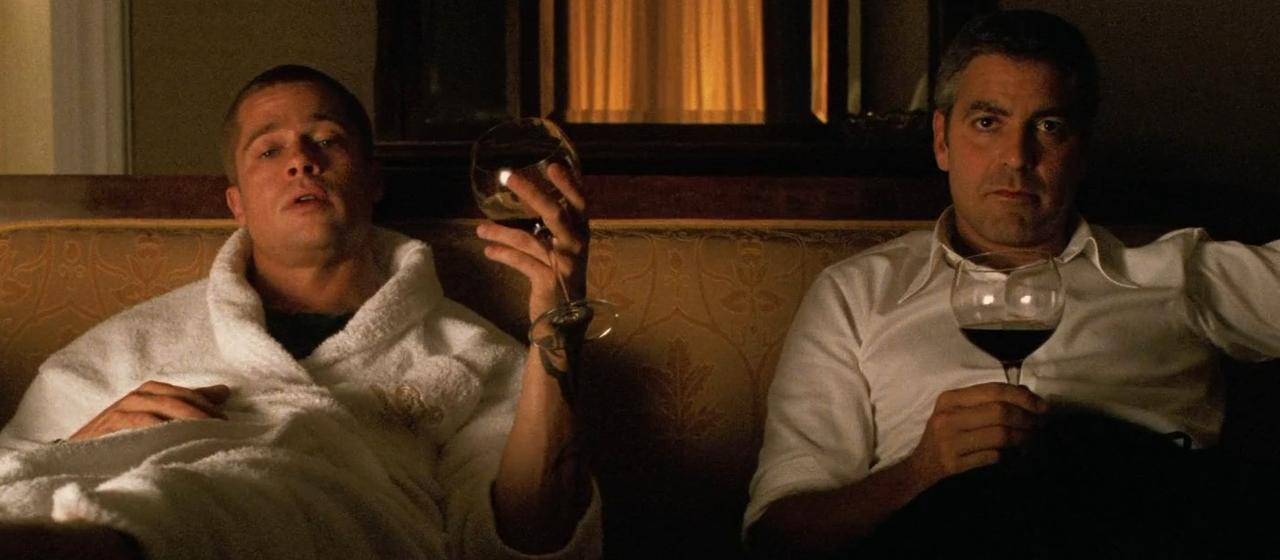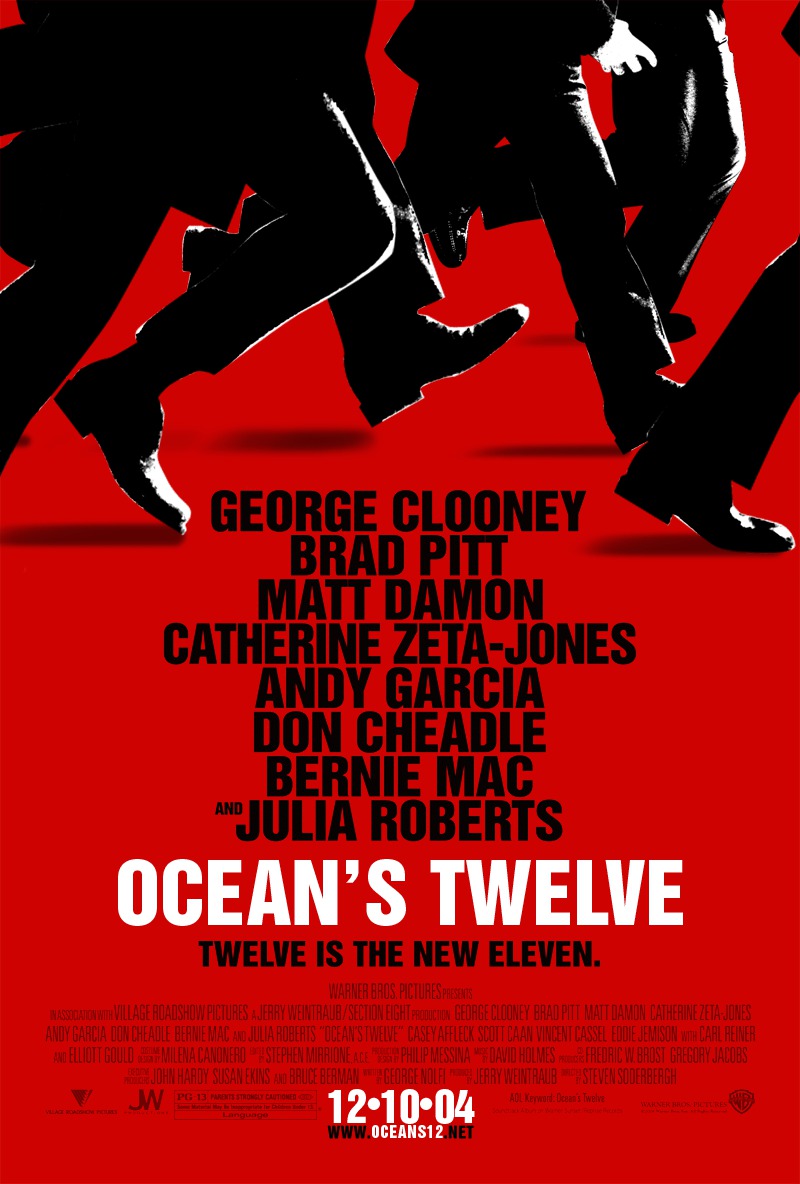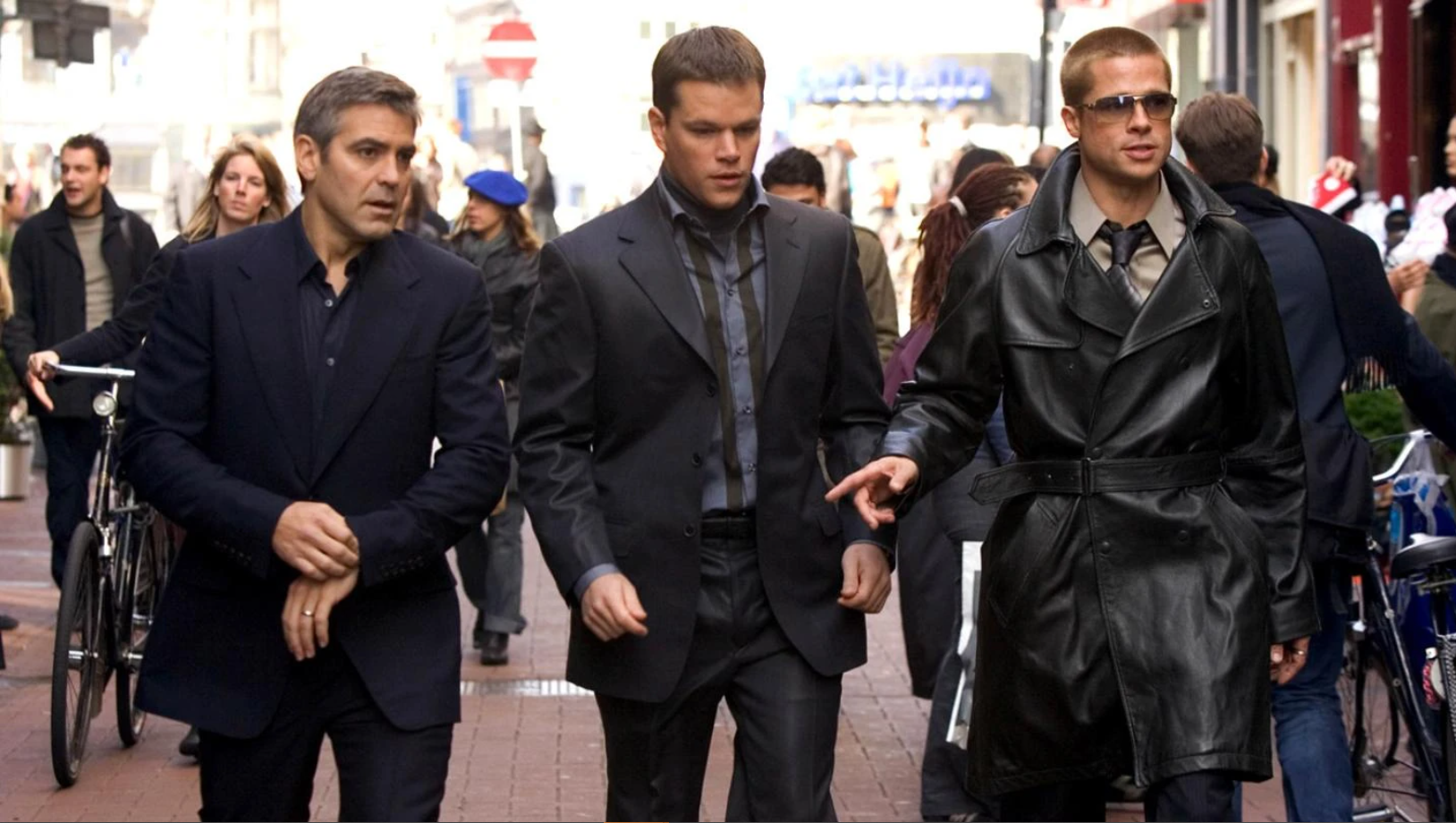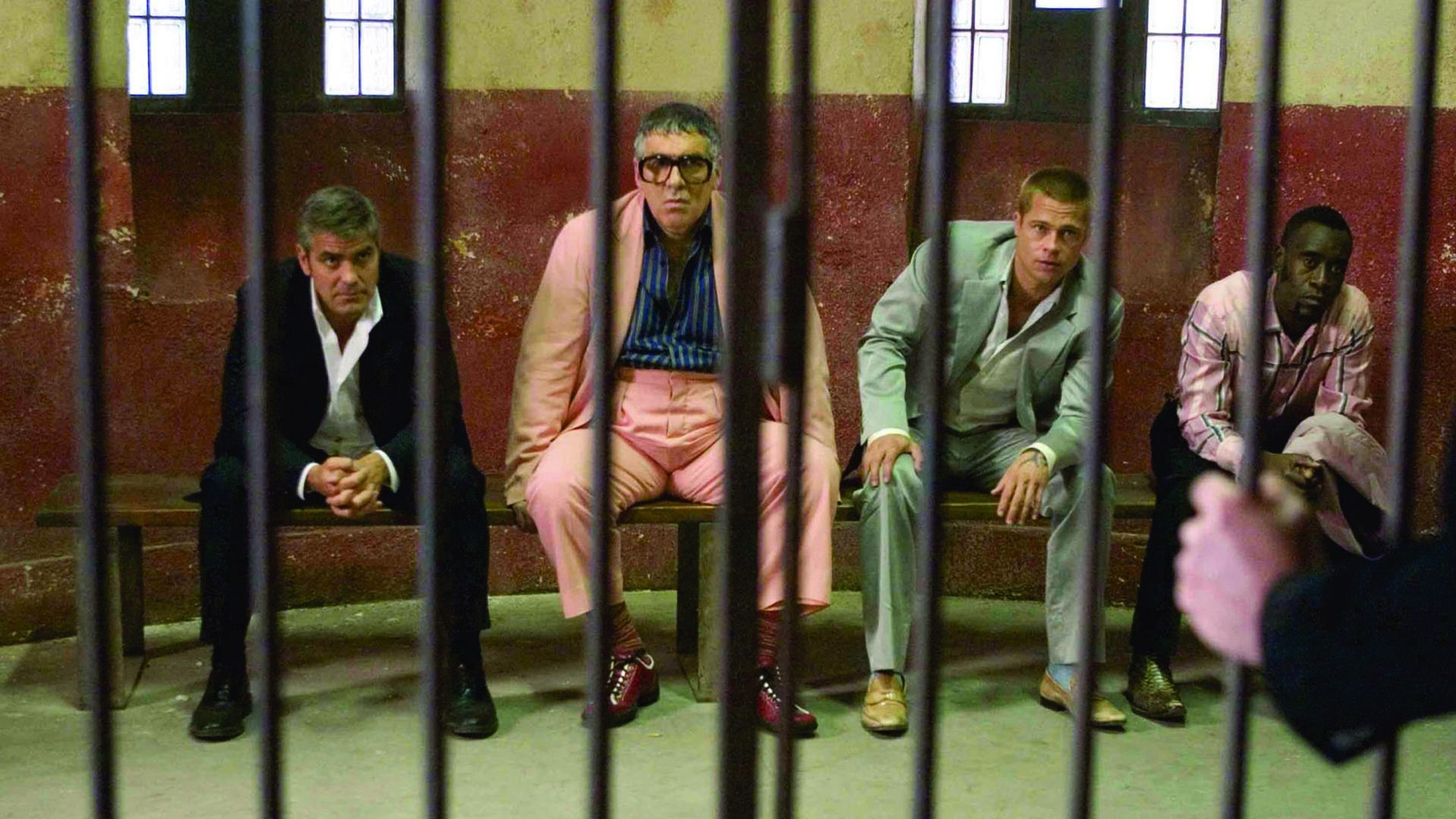

“Look, it’s not in my nature to be mysterious. But I can’t talk about it and I can’t talk about why.”
Ocean’s Twelve is barely a heist film at all. It’s more of an ensemble comedy in which the stars play caricatures of their characters from the first film (which were caricatures to begin with) as they fumble through a series of tongue-in-cheek cons, the largest of which is barely visible to the audience even after it’s been revealed. It would behoove the viewer to accept that up front lest they risk disappointment when it does not adhere to the formula of its predecessor. Knowing this fact and acknowledging the alternative merits of the sequel, it becomes easier to view it as a successful experiment in genre subversion; one that received a great deal of undeserved derision upon release.
Ocean’s Eleven, while compulsively rewatchable due to its effortless suavity and confident direction, is a narratively lightweight affair. Very few hiccups interrupt the scheme as Danny Ocean (George Clooney) and his crew of swindlers infiltrate Terry Benedict’s (Andy Garcia) casinos then abscond with his millions and his girl. At the end of the film, as the team basks in the glory of their victory by the fountains of the Bellagio, there’s an air of closure that doesn’t call for a follow-up in the way many sequel-begging products do. No loose ends, no unfinished overarching story, no incomplete character arcs. In other words, Ocean’s Twelve didn’t need to exist.
Once it was decided that Soderbergh was getting the gang back together, audiences expected that they’d just roll out a general retread of the same scenario. A bigger heist, more stars—just up the ante and make more boatloads of money. After all, Ocean’s Eleven was Soderbergh’s laid back popcorn movie after a handful of prestige pictures. Why not just do it again? I don’t know the answer to that question, but I can assure you that Soderbergh didn’t just do it again (though he would for Ocean’s Thirteen). In fact, he and writer George Nolfi discard the trajectory of the first film entirely. This time, instead of a perfectly executed plan, the twelve con artists (Julia Roberts’ Tess is now part of the gang) are constantly outwitted and out of their depth, failing miserably where they previously succeeded without breaking a sweat. Further, their prize is not an exciting new score, but rather, the avoidance of retribution. And it’s set in Amsterdam instead of Vegas!

Danny and Tess are living richly in post-heist romantic bliss when Terry Benedict knocks on their door and gives them two weeks to pay back the money they stole from him, with interest—some $200 million. He tracks down the rest of the thieves and delivers a similar message to each. But as the group gathers together to tally up what remains of Benedict’s money and make a plan to purloin the rest, the chief point of concern is not how to avoid being executed in two weeks, but why Benedict collectively referred to them as “Ocean’s Eleven.” It was one job, when did they become a team? And who is the real leader—Danny, or Rusty (Brad Pitt)? From the beginning, then, Ocean’s Twelve treats itself as something of a joke.
Even the secondary antagonist—a fellow master thief who goes by the moniker Night Fox (Vincent Cassel)—is a non-threatening goofball. He beats Danny’s crew to their first score and then challenges them to a competition: if they can steal the Fabergé Imperial Coronation Egg before he does, he’ll pay their debts. If he wins, Danny must admit that the Night Fox is the best thief in the world. Hot on their tails is Europol detective Isabel Lahiri (Catherine Zeta-Jones), who has been tracking the Night Fox and his legendary mentor LeMarc for the majority of her career. Oh, and she briefly dated Rusty a few years ago.
Ocean’s Twelve proceeds in this playful mode of light self-mockery but retains a decent momentum that allows it to remain entertaining even while it subverts expectations. There’s a surplus of illogical, indulgent, and otherwise unbecoming shenanigans that turn off many viewers who come looking for the streamlined pleasures of the original. For instance, the Amazing Yen (Shaobo Qin), whose contortionist abilities were so crucial in the first heist, is folded up into a duffel bag and sent to an unknown destination. He turns up later, jumping on a hotel bed after days spent jammed into a luggage rack. But that’s it. His special talents are unnecessary, just like those of the rest of the crew who spend the bulk of the film behind bars.
Early in the film, Danny and Rusty allow Linus (Matt Damon) to tag along when they meet with an informant. The conversation is so cryptic—“If all the animals along the equator were capable of flattery, then Thanksgiving and Halloween would fall on the same day.” “When I was four years old, I watched my mother kill a spider with a tea cosy. Years later, I realized it was not a spider. It was my Uncle Harold.”—that Linus panics. Perhaps he is not ready to take on a leadership role. When prompted to contribute to the conversation, he quotes Led Zeppelin’s ‘Kashmir’: “Oh, let the sun beat down upon my face, stars fill my dreams. I am a traveler in both time and space, to be where I have been.” Outside Linus is informed that he had called the man’s seven year old niece a cheap whore.

But even as Soderbergh intentionally throws curveballs at every opportunity, pokes fun at the very premise of a sequel by hanging the entire plot on a paper thin premise, and cuts away from all but the most heinous action sequences (cue Vincent Cassel breakdancing his way through a field of moving laser motion detectors), he balances his offering with a healthy dose of self-reflexive humor that stems from the actors’ camaraderie and celebrity. George Clooney finds himself fielding jokes about his age. “Do I look fifty to you?” “Yeah, well, I mean, you know, only from the neck up.” Matt Damon’s increased prominence feels like a cheeky comment on his newfound stardom with the Bourne series. The tipping point for many comes when Tess is brought in to imitate Julia Roberts. It’s a mocking comment on star-stuffed films that is compounded when Bruce Willis makes an extended cameo as himself only for Danny’s crew to tease him that they knew the twist was coming in The Sixth Sense. “If everybody’s so freaking smart, how come the movie made $675 million worldwide, theatrical?” There are subtler moments of meta humor too, like when Don Cheadle’s character coaches Julia Roberts how to speak with the correct amount of Southern in her accent when Cheadle was ridiculed for his Cockney accent in the first film.
Meta games like the one Soderbergh is playing here are risky. There’s a logic to his subversive madness as he goes about trashing all of the tropes associated with the film’s genre, but understanding the filmmaker’s stance doesn’t mean that the product will be enjoyable. Not all films that are ripe for analysis are necessarily pleasurable. But even if one finds themselves turned off by Soderbergh’s metatextual playfulness with his narrative and cast, there are plenty of under-the-radar flourishes that give the film a nice punch. Freeze frames, bold editing choices, an interesting shot where he obviously laid on the asphalt of a runway to get a shot of a plane, Brad Pitt’s ridiculous, ever-changing wardrobe.
Though it takes things in a different direction than the first film, Ocean’s Twelve fulfills the same general criteria by presenting the audience with suave operators pulling off massive cons to invigorating music. That contemporary critics balked at its playfulness is a shame, but not surprising.